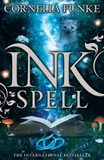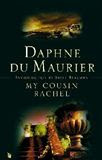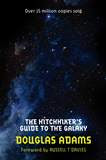We’ve a fascination with celebrities. This much is obvious. Not content with merely digesting their work, we have a hunger for the people themselves; we want to know what they do to relax, how they devise their performances and what drives them. Derren Brown is motivated by people. He has an interest in what makes us tick and he combines this with extraordinary magic. Obvious then that we should want to strip him of his evening suit, pop him in a pair of jeans and sit him on a couch with a fellow magician (and psychology expert) to pick his brain. Welcome to The Conversation.
The world of magic and illusion is so often met with sneers and disinterest at clichéd and twee tricks which have long since lost their whimsy. Derren’s work is anything but. He has a love of parrots and taxidermy and after dappling with hypnosis in-between studying law he graced the restaurants of Bristol as a wandering magician before his big break with Channel Four. The real interest of The Conversation though, is getting a peek into how his mind works and he openly discusses the thoughts that go through his head while performing.
Scrutinising Derren’s inner-workings is fascinating, though in truth few of us expect he’ll let anything too interesting slip. What strikes you most - and this is true of his on-stage persona – is his unassuming nature. He chats happily; listening, pausing and responding with earnest as he chews over each question. While his methods are obviously shrouded in secrecy, he shares with us what he can. His most recent show, Svengali, requires a couple to come onstage and he talks us through selecting the right candidates; she must be quiet and slightly nervous while her male companion must not be too cocky otherwise the illusion will fail.
Stage work aside, he talks fondly of Trick of the Mind and reminisces about Trick or Treat (a particularly dark series where a victim is chosen and receives tutelage from our magician culminating in a dramatic trick… or treat). He speaks frankly and admits the most fun was had working for longer periods with individuals in helping them overcome fears and phobias. Hero at 30,000 Feet remains his favourite show to date, something he describes as ‘very special and meaningful’. When asked if these types of shows are perhaps unnecessarily dark or intense for the those involved he defends his work, arguing reality tv shows (for which he shows considerable distain) are far more sinister than anything he does and in fact all the participants emerge feeling happy to have taken part.
 |
| photo by Kenny Mathieson |
Though the reason for his initial interest in conjuring has since worn off, it seems to have become something altogether more special. Watching him speak about his work, there’s an obvious curiosity - and infallible respect – for people. While the magic is flawless and the routines complex, he never fails to light up at the astonished response. There’s an unmasked joy and humour to what he does which is free from ego, pretention or flamboyancy. Perhaps the root of his success lies here. The transition in his work from mind-reading telly fodder to intricate studies of individual behaviour and investigative projects certainly suggests he has moved on from traditional magic and in fact found something far more interesting for himself.
The Conversation was a treat. I say ‘was’ because such a show is unlikely to be repeated and those of us who were lucky enough to attend left feeling intrigued by the enigmatic performer who really just seems like a terribly nice man.



















